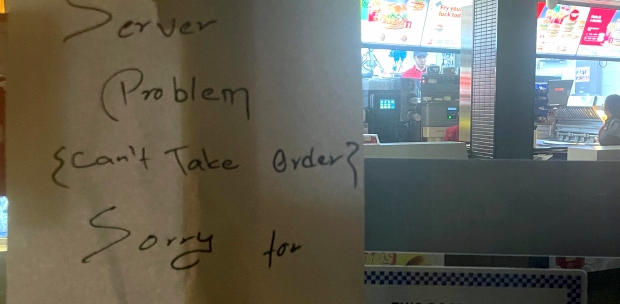When I was 12, I received an offer to attend a prestigious boarding school.
My friends perceived it as a great opportunity. However, the offer made me worried. I could hardly sleep at night, trying to come up with convincing excuses to decline the offer.
One of my uncles, Pak Nyah, an English teacher, was so excited and repeatedly told me that only good students would get this opportunity.
Mak sensed that I was a bit tense. She told me, if I decided to accept, she would visit and bring my favourite dishes every weekend.
I assumed she was trying to persuade me. With a heavy heart, I told Mak and Bapak that I would accept the offer. While Bapak seemed relieved, Mak was not as pleased as I expected her to be.
Mak started to talk about the seriousness of my asthma, that the school buildings were old and reminded me about my allergy to dust.
I agreed with her that going to the boarding school would not be a good idea. Mak was relieved but Pak Nyah was not happy.
I went to a national school and performed quite well in the Form 3 (the Sijil Rendah Pelajaran back then) examination and received another offer from the same boarding school.
I decided to reject it, again. This time, everyone, including Pak Nyah, respected my decision.
After my Form 5 (Sijil Pelajaran Malaysia) exam, I got an offer to study abroad. At the age of 18, I would be 15,000km from my family.
While Mak brought up the asthma and dust allergy concerns again, Bapak asked whether I was ready for this drastic change. I was determined and left Malaysia a month after that.
After graduation, I entered another episode of "change" in my life. I was lucky, the economy then was booming. The unemployment rate was at its lowest.
Most graduates received several job offers. Nevertheless, I had so many worries going to work for the first time, including the littlest things, such as whom I was going to have lunch with or whether my clothes were appropriate, etc.
As it happened, I accepted an offer from an organisation where a few friends were working there. We had lunch together most of the time.
After several years, I got bored with my routine work, and my productivity declined. At times, I told a few of my colleagues that I felt that it was as if I had a big rock tied to my feet every morning going to work.
To overcome it, I searched for new activities and continuously introduced change in the office, as I felt that there were many things we could improve.
Although, some were very small, the fact that I managed to introduce changes, made it satisfying. My boredom went away.
Thanks to management scholars, another for word "change" is becoming fashionable, as it is perceived to be a new, sophisticated word with a more positive connotation — "innovation". It's defined as the effort of introducing new products, processes or technologies, to make things better in an organisation.
I may have not talked about my failures much, but I have gone through a lot more failures than successes.
When I reminisce those early years, I realised that what made things seem difficult at the time was not about the change but about fear of failure.
It was difficult for me to decide go to boarding school for the first time, because I was afraid of failing to fulfil the high standards of the school.
The decisions for rejecting the second offer and going abroad were not difficult because failure was no longer a big concern as I had proved it in my exam results.
Of course, there were failures along the way.
Going to work for the first time was difficult, as I did not know what to expect, that I might have failed to perform to my academic credentials.
I think we should look at change in different perspectives. Of course, the aim of change is for the better, but we tend to put aside what may usually come with it — failure.
At times, we need to celebrate and reward those who had failed.
This will eventually resolve the most challenging part of change — fear of failure.
By overcoming this, we will no longer need to dare people to change. It will come naturally.
The writer urges everybody not to fear failure and strive to change for the better.
The views expressed in this article are the author's own and do not necessarily reflect those of the New Straits Times





